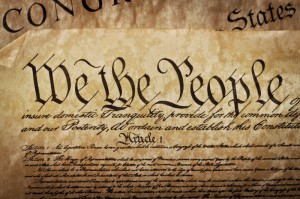Audio clip: Adobe Flash Player (version 9 or above) is required to play this audio clip. Download the latest version here. You also need to have JavaScript enabled in your browser.
 In This Episode:
In This Episode:
I pull back the curtain on False Confessions. What would possibly compel an innocent person to take responsibility for a crime he did not commit? We will explore the psychological studies that have delved into this phenomena as well as some famous cases where a suspect’s confession has been proven false.
The Innocence Project estimates that of the 300 cases where DNA testing led to the release of the wrongfully convicted, nearly 25% involved a false confession. Many people believe they would never confess to a crime they did not commit, but overturned convictions and academic studies prove this is a misconception. It’s not just the vulnerable, the young, the mentally ill and the developmentally disabled that can be coerced, but the odds are greater in those cases.
See below for a video from National Geographic showing the actual interrogation of 14 year old Michael Crowe who was suspected of killing his sister, Stephanie. He was subjected to what the courts deemed “psychological torture” leading him to confess to the crime even though he had nothing to do with her death.
:
Another famous case of a wrongful conviction occurred in Norfolk, Virginia where four men gave false confessions to a brutal murder. They have come to be known as the Norfolk Four.
Two noted academic studies dealing with false confessions: Kassin and Kiechel, The Social Psychology of False Confessions and Dervan and Edkins, The Innocent Defendant’s Dilemma.
TRIAL LAWYER MENTOR Quick Tip:
Tips for dealing with dense and often bland statistical information, academic studies or other dry data that you need to include in your persuasive presentaion.
LAWYERS and LAW STUDENTS:
Click here to sign up for our free newsletter where I share in depth tips and strategies for mastering the Art of the Jury Trial.
Download AUDIO here (MP3)
